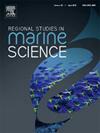使用深度学习的海洋腐蚀二元分类:跨多源数据集的比较基准分析
IF 2.4
4区 环境科学与生态学
Q3 ECOLOGY
引用次数: 0
摘要
海洋腐蚀对海洋基础设施的耐久性和安全性提出了重大挑战,但传统的检测方法仍然是主观的、耗时的,而且准确性有限。本研究通过两个独立的实验,使用不同的海洋腐蚀数据集,对四种最先进的卷积神经网络(vgg16、VGG19、InceptionV3和resnet50)的二进制分类性能进行了基准测试。实验1使用了来自三个公开来源的5105幅图像,而实验2使用了完整的9000幅海洋腐蚀数据集。在这两种情况下,图像都被标记为腐蚀结构和健康结构,没有调整大小或进行额外的预处理,并且在KAI软件框架中使用标准化增强、从ImageNet权重迁移学习和一致的超参数设置进行训练。结果表明,ResNet50在实验2中达到了完美的准确率(100 %),并且在数据集上表现出很强的泛化能力,而InceptionV3和VGG变体也提供了很高的准确率、召回率和f1分数,高于96 %。本研究的新颖之处在于将两个独立的海洋腐蚀数据集结合起来进行可重复的基准测试,将标准化的基于cnn的实验与迁移学习结合起来,并为海洋工程中的腐蚀检测建立了强大的性能基线。这些发现强调了将深度学习集成到自动化检测工作流程中的可行性,实现了可扩展、可靠和高效的监测策略,支持预测性维护并延长船舶资产的使用寿命。本文章由计算机程序翻译,如有差异,请以英文原文为准。
Binary classification of marine corrosion using deep learning: A comparative benchmark analysis across multi-source datasets
Marine corrosion presents a significant challenge to the durability and safety of maritime infrastructure, yet conventional inspection methods remain subjective, time-consuming, and limited in accuracy. This study benchmarks the binary classification performance of four state-of-the-art convolutional neural networks—VGG16, VGG19, InceptionV3, and ResNet50—across two independent experiments using distinct marine corrosion datasets. Experiment 1 employed 5105 images curated from three publicly available sources, while Experiment 2 utilized the complete 9,000-image Marine Corrosion Dataset. In both cases, images were labeled as corrosion_structures and healthy_structures, with no resizing or additional preprocessing applied, and training was performed in the KAI software framework using standardized augmentation, transfer learning from ImageNet weights, and consistent hyperparameter settings. Results demonstrated that ResNet50 achieved perfect accuracy (100 %) in Experiment 2 and exhibited strong generalization across datasets, while InceptionV3 and the VGG variants also delivered high precision, recall, and F1-scores above 96 %. The novelty of this study lies in combining two independent marine corrosion datasets for reproducible benchmarking, applying standardized CNN-based experiments with transfer learning, and establishing robust performance baselines for corrosion detection in maritime engineering. These findings highlight the feasibility of integrating deep learning into automated inspection workflows, enabling scalable, reliable, and efficient monitoring strategies that support predictive maintenance and extend the service life of marine assets.
求助全文
通过发布文献求助,成功后即可免费获取论文全文。
去求助
来源期刊

Regional Studies in Marine Science
Agricultural and Biological Sciences-Ecology, Evolution, Behavior and Systematics
CiteScore
3.90
自引率
4.80%
发文量
336
审稿时长
69 days
期刊介绍:
REGIONAL STUDIES IN MARINE SCIENCE will publish scientifically sound papers on regional aspects of maritime and marine resources in estuaries, coastal zones, continental shelf, the seas and oceans.
 求助内容:
求助内容: 应助结果提醒方式:
应助结果提醒方式:


